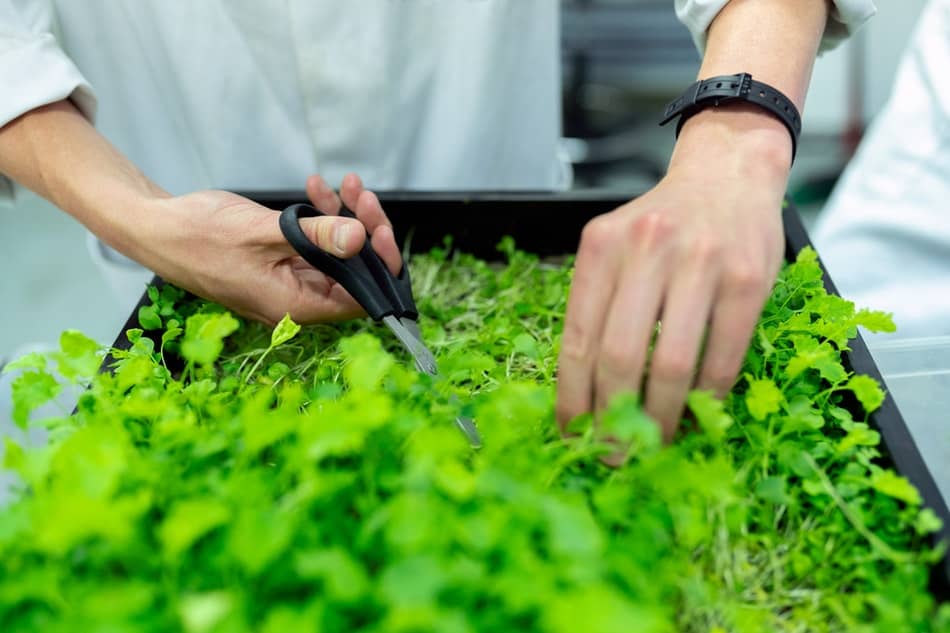What should the EC be for hydroponics? This is a question that many growers struggle with. The answer to this question can vary, depending on the type of hydroponic system you are using and the plants you are growing. In this article, I will discuss what EC levels work best for different types of hydroponic systems and plants.
The EC for hydroponics should be around 0.75 – 0.85 mS/cm. This is the ideal range for most plants and will ensure that they are getting the nutrients they need without being overloaded. Anything outside of this range can cause problems for your plants.
Why Is It Important To Check The EC Of Hydroponics?
Checking the EC of hydroponics is a simple, but important, task that all growers should do regularly. By taking the time to do this, you can ensure that your plants are getting the nutrients they need to thrive.
One reason why it’s important to check the EC of hydroponics is that it lets growers know if their plants are getting too much or not enough nutrients. The ideal range for most plants is 0.75-0.85 mS/cm. Conductivity meters can be found at most gardening stores or online. Checking the EC regularly helps ensure that your plants are getting the right amount of nutrients.

If you have problems with your hydroponic system, checking the EC can help you troubleshoot them. For example, if your plants are not growing as well as they should be, it could be because they’re not getting enough nutrients. Checking the EC will let you know if this is the case so you can adjust your nutrient solution accordingly.
Lastly, checking the EC of hydroponics can help optimize your system for maximum plant growth. By keeping an eye on the EC levels, you can make sure that your plants are getting just the right amount of nutrients they need to grow healthy and strong. So if you’re serious about growing plants hydroponically, be sure to check the EC regularly!
How To Check The EC For Hydroponics
- The first step is to gather all of the materials that you will need. You will need a light meter, a pH testing kit, and an EC meter.
- Once you have gathered all of the materials, you will need to set up your grow room. Make sure that the room has plenty of ventilation and that the temperature is between 68-78 degrees Fahrenheit.
- Once your grow room is set up, you will need to take measurements of the light intensity, pH levels, and EC levels. You can do this by using your light meter, pH testing kit, and EC meter.
- Make sure to take readings at different times of the day so that you can get an accurate picture of what is going on in your grow room.
- Once you have taken all of the readings, you will need to analyze them. You should compare the readings to the ideal levels for hydroponics. If the readings are off, then you will need to make adjustments to your grow room. For example, if the pH levels are too high, then you will need to add more acid to the system.
Making adjustments to your growing room can be a tricky process. If you are having trouble, don’t hesitate to reach out to a professional for help. They will be able to help you get your grow room back on track so that you can produce healthy plants.

How To Get EC Levels Down
EC, or electrical conductivity, is a measure of the number of salts dissolved in water. The higher the EC, the more salt there is in the water. While high EC levels are not necessarily harmful to plants, they can cause problems with nutrient uptake and lead to stunted growth.
To lower EC levels in your soil, you can leach out the salts with irrigation water or by planting cover crops that take up excess salts from the soil and store them in their leaves. You can also add amendments to your soil that will help to break down salts and make them easier for plants to absorb.
If you have high EC levels in your soil, don’t despair! With a little effort, you can get them under control and improve the health of your plants.
Does pH Affect EC Levels?
The answer is yes, pH does affect EC levels. How? The level of acidity or alkalinity in the soil directly affects how well plants can uptake nutrients from the soil solution. When the pH is too low, it limits plant nutrient availability and when the pH is too high, it can damage plant roots.
Maintaining the correct pH level is essential for optimal plant growth and development. To measure your soil’s pH level, you’ll need to use a soil test kit or have your local cooperative extension office test your soil for you. Once you know your soil’s current pH level, you can take steps to adjust it if necessary.
If you’re unsure about how to adjust your soil’s pH level, or if you need help interpreting your soil test results, be sure to ask your local cooperative extension office for assistance. They can also offer guidance on how to select the best fertilizer for your plants, based on your soil’s nutrient needs.
With proper pH management, you can ensure that your plants are getting the nutrients they need for healthy growth and development. Don’t let pH levels get in the way of a bountiful harvest!
Final Words
The EC should be monitored closely in a hydroponic system as it can easily become unbalanced, which can lead to problems with the plants. By keeping a close eye on the EC, you can ensure that your plants are getting the nutrients they need and avoid any potential problems.
Thanks for reading!
Related Articles

